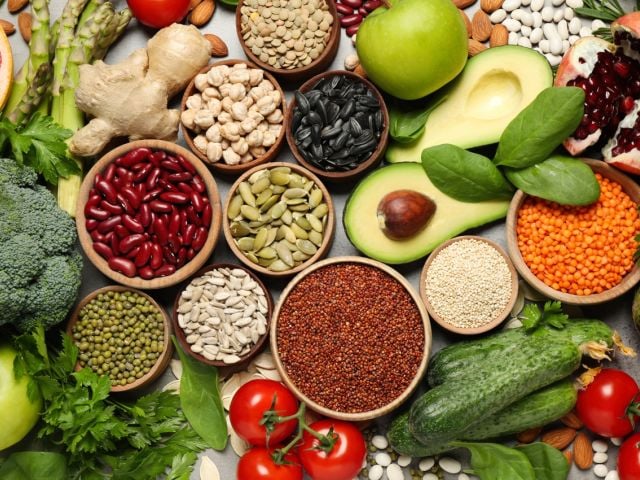Every day, 1 million American children age 5 and under consume unsafe levels of a class of pesticides that can harm the developing brain and nervous system, according to a new analysis of federal data by the Environmental Working Group (EWG).
According to the EWG report, peaches, apples, pears and grapes, are the most common sources of exposure to unsafe levels of organophosphate pesticides, or OPs, for young children. The report says the solution is not for infants, children and pregnant women to eat fewer fruits and vegetables, but to rid these otherwise healthful foods of the most dangerous pesticides.
"Kids should be able to eat a diet rich in fruits and vegetables without risking brain or nerve damage," said EWG vice president for research Richard Wiles, lead author of the study.
The report, Overexposed: Organophosphate Insecticides in Children's Food, is in response to the Food Quality Protection Act, passed unanimously by Congress in 1996, that requires all pesticides to be safe for infants and children. The law further stipulates that combined exposures to pesticides be considered when setting safety standards.
"It's been more than 18 months since Congress passed the Food Quality Protection Act, which says the EPA must set exposure levels that are tough enough to protect the nation's children," said Wiles. "This study shows that every day, hundreds of thousands of children receive unsafe exposures, at precisely the age when they are most vulnerable to long- and short-term brain and nervous system damage."
The EWG report released today is the first comprehensive analysis of exposure to organophosphate pesticides in the U.S. food supply. It is based on more than 80,000 samples of food tested by the U.S. Department of Agriculture and the Food and Drug Administration, and dietary records for more than 4,000 children collected by the USDA.
The foods that cause the most children age 5 and under to exceed a safe daily dose of OP pesticides are apples, peaches and grapes. Almost one-fourth of the times a young child eats a peach, that child is consuming an unsafe level of OP pesticides. About one apple in eight will expose a child to an unsafe dose.
For infants 6 to 12 months old, commercial baby food is the dominant source of unsafe levels of pesticides in food. Every day, about 77,000 infants are exposed to unsafe levels through eating baby food preparations of apple juice, apple sauce, pears and peaches. The authors stress that baby food is generally safer than other foods parents may feed their infants.
"The point is not that parents should avoid feeding baby food to their children, the point is that pesticides in baby food are not safe for babies. Baby food should not have any pesticides in it at all. We think if you ask parents, they will agree," said Wiles. "In the meantime, organic baby food provides parents with an added measure of safety," Wiles added.
Estimates of the number of children at risk are conservative not only because kids are also exposed to pesticides sprayed in their homes, schools and day care centers, but because the EPA's current standards are based on levels considered safe for adults. The EWG study estimates that if the EPA set standards to comply with the Food Quality Protection Act, which requires an additional ten-fold margin of safety, as many as 3.6 million children aged 6 months to 5 years could be considered at risk.
"There is no scientific justification for allowing levels of pesticides in food that put more than one million children at risk each day," said Kert Davies, co-author of the report.
The study found that of the 13 OP pesticides found in or on food by the USDA and FDA, most of the risk to children comes from five chemicals: methyl parathion, dimethoate, chlorpyrifos, pirimiphos methyl and azinphos methyl. The report urges that these five pesticides be banned immediately for all agricultural use, and also recommends:
- A ban on all home and other structural use of OP pesticides.
- A ban on all OP pesticides on commodities that end up in baby food.
- Safety standards for all OP pesticides must be set at levels that are safe for infants and children.
- Additional developmental neurotoxicity studies on all OP pesticides in the food supply must be conducted before EPA adopts new OP regulations next year.
Environmental Working Group, a project of the Tides Center, is a nonprofit research organization with offices in Washington, DC and San Francisco.



